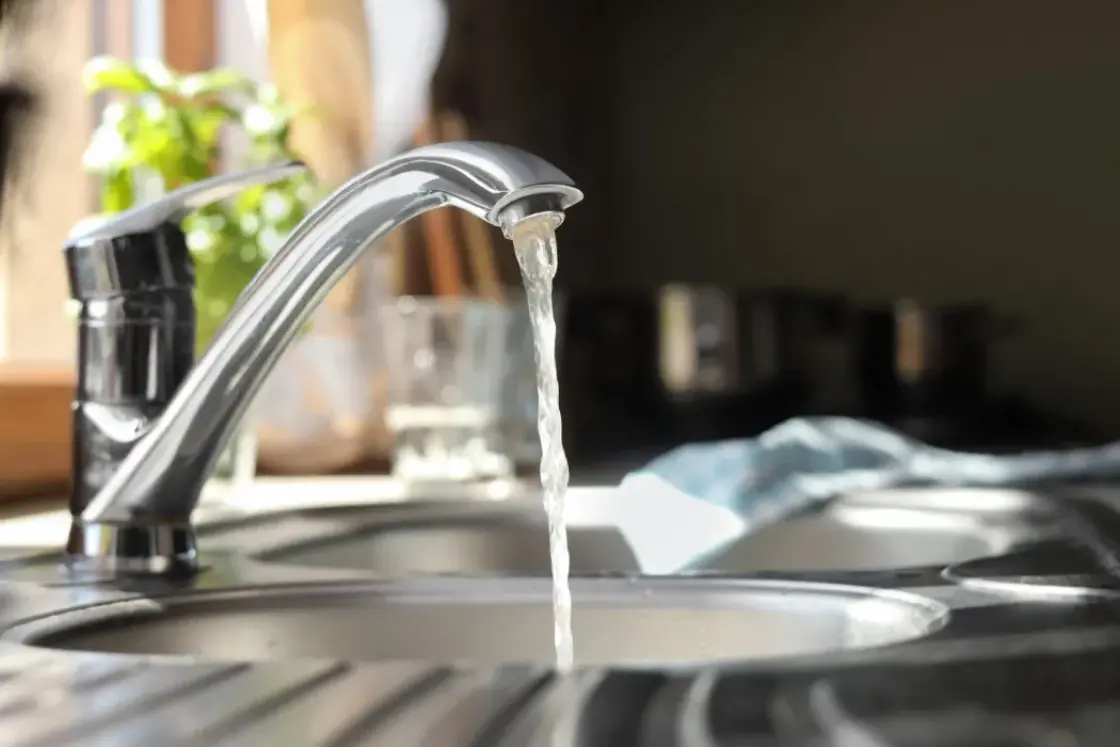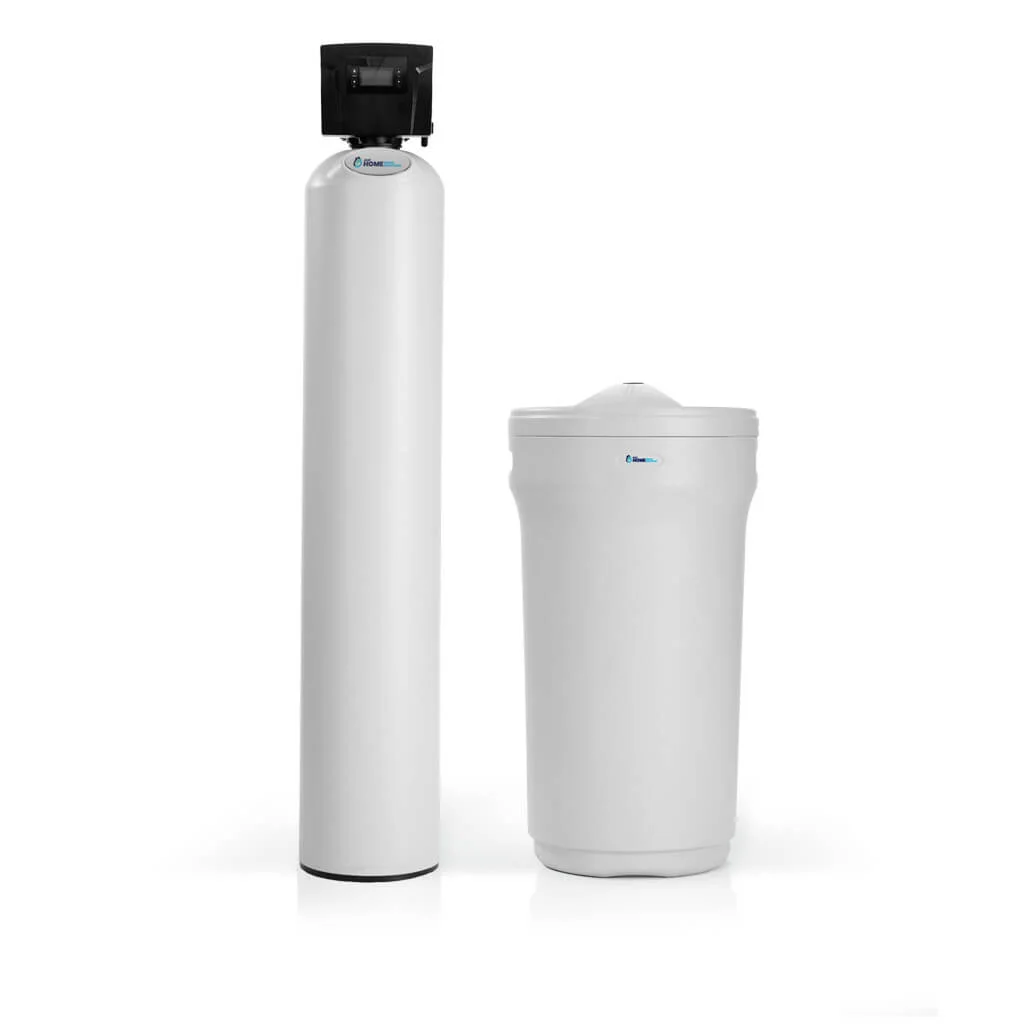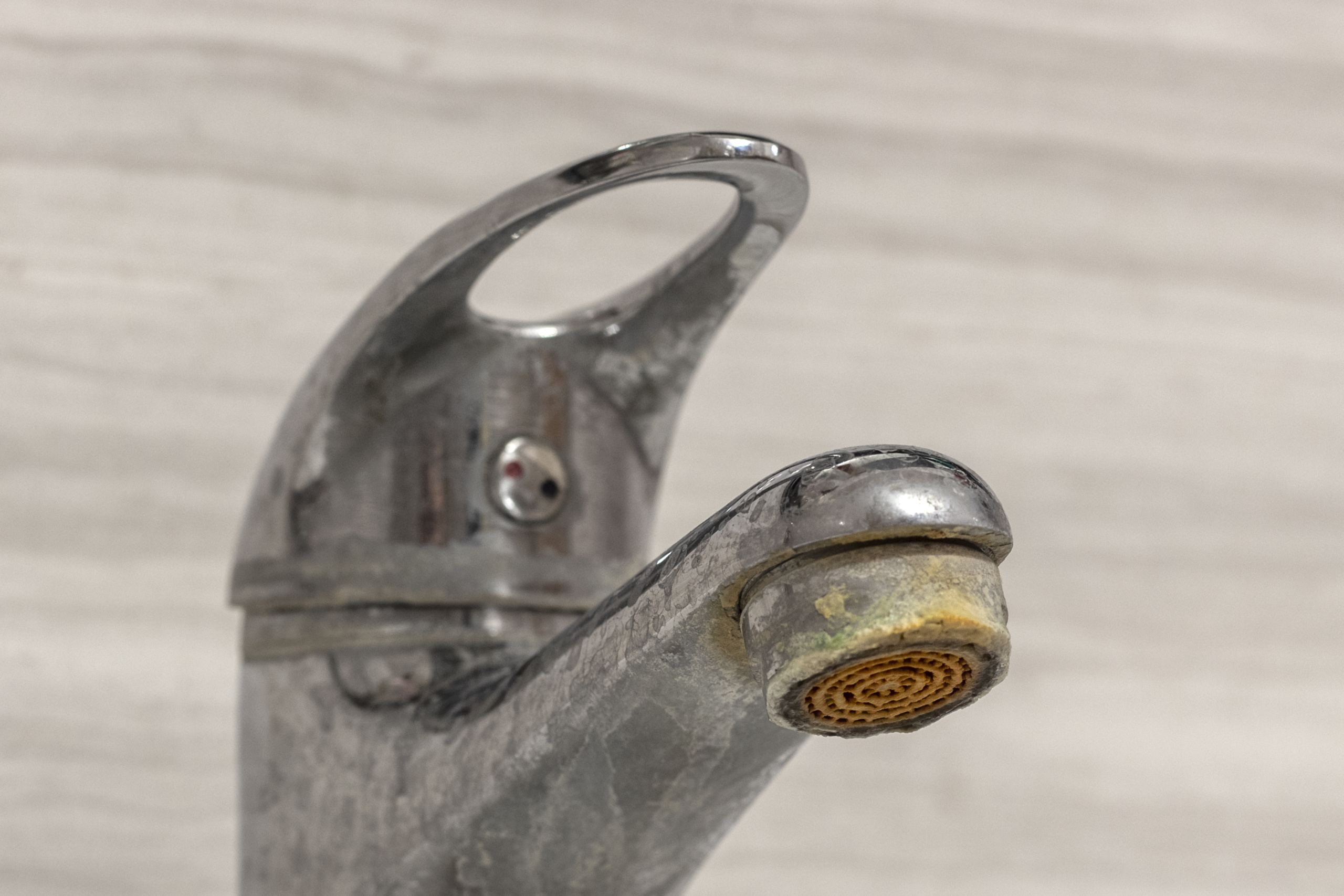Pros and Cons of Salt-Free Water Softeners

Understand the benefits and drawbacks of a salt-free water conditioning system: get better-tasting water and reduce hard water issues at home.
When it comes to improving water quality in your home, choosing the right water softener is crucial. In recent years, salt-free water softeners have gained popularity among the various options available to homeowners. What sets a salt-free softener apart from a traditional salt-based water softener?
Water softeners help combat hard water, which can cause scale buildup in pipes and appliances, reduce soap efficiency, and leave mineral deposits on dishes and surfaces. With many homeowners seeking healthier, more environmentally friendly options, understanding the benefits and potential drawbacks of salt-free water conditioners is essential.
In this article, we will discuss the pros and cons of salt-free water softeners, helping you make an informed decision about buying a new system or replacing your existing salt-based one.
In This Article
- What Are Salt-Free Water Softeners?
- Advantages of Salt-Free Water Softeners
- Disadvantages of Salt-Free Water Softeners
- Comparing Salt-Free vs Salt-Based Softeners
- Enjoy the Benefits of Salt-Free Water Softeners
- Frequently Asked Questions
What Are Salt-Free Water Softeners?

Salt-free water softeners, often called water conditioners, differ from traditional salt-based systems because they do not remove hard minerals from the water. Instead, they neutralize these minerals, preventing them from forming scale. This method maintains the beneficial minerals in the water while protecting your plumbing system and appliances from damage.
How Do Salt-Free Water Softeners Work?
Unlike traditional softeners which use ion exchange to replace calcium and magnesium ions with sodium, salt-free softeners use a process called Template-Assisted Crystallization (TAC). TAC converts the hardness minerals into microscopic crystals that remain suspended in water and are unable to adhere to surfaces as scale.
One major advantage of how salt-free water softeners work is they do not require salt or a regeneration process, making them more eco-friendly. Most systems are installed at the point of entry to treat all incoming water. While minor scale buildup can still occur, it is significantly minimized, helping extend the lifespan and efficiency of household systems.
Types of Salt-Free Water Softeners
We’ve come a long way since the traditional salt-based water softeners. Now, there are several new, alternative types of salt-free water softeners available:
- Catalytic Media Softeners: These use a catalytic media that changes the chemical structure of hardness minerals, converting them into harmless crystals. This process effectively prevents scale buildup without removing beneficial minerals from the water.
- Electromagnetic Softeners: These systems use electromagnetic waves to alter the properties of hard minerals, reducing their tendency to form scale. They are typically installed around the main water pipe and provide a non-invasive solution to water conditioning.
- Magnetic Softeners: These devices use magnets to treat water like electromagnetic softeners. The magnetic fields modify the behavior of minerals, minimizing scale formation on surfaces and within pipes.
Advantages of Salt-Free Water Softeners

Salt-free water softeners offer various benefits, making them an appealing choice for many homeowners.
Health Benefits
One of the primary health advantages of salt-free water softeners is the absence of added sodium. Traditional salt-based systems exchange hard minerals for sodium, potentially increasing sodium intake through drinking water. Salt-free systems retain essential minerals like calcium and magnesium, which are beneficial for health.
Environmental Benefits
Salt-free systems are environmentally friendly due to their reduced salt discharge and lower water usage. Traditional softeners require regeneration cycles, which require the disposal of brine tank waste into the sewer system. This can negatively impact the environment. Salt-free systems, on the other hand, minimize environmental pollutants and conserve water.
Maintenance and Cost
Maintaining a salt-free water softener is relatively hassle-free compared to traditional systems. They do not require frequent salt refilling, reducing ongoing maintenance efforts and costs. Additionally, their longer lifespan and minimal upkeep needs make them a cost-effective solution in the long run.
Impact on Plumbing
Salt-free softeners prevent scale buildup, thereby protecting your plumbing system and extending the lifespan of household appliances. Maintaining clean pipes and efficient appliances improves water flow and energy savings. In addition, they take up less space than traditional water softeners, which typically require two tanks.
Disadvantages of Salt-Free Water Softeners
While salt-free softeners have many benefits, the potential downsides should be considered when comparing them to traditional water softeners.
Limited Effectiveness
Salt-free water softeners may not be suitable for extremely hard water conditions. Their ability to neutralize rather than remove hardness minerals may not provide the same level of water softness as traditional systems. This can lead to scale buildup and other issues, like hard water spots and soap scum. Homeowners with very hard water may need to explore other solutions.
Initial Costs
The upfront cost for salt-free water softeners can be higher compared to traditional systems. Additionally, retrofitting an existing setup to accommodate a salt-free system may incur extra costs. However, the long-term benefits and savings on salt refills and waste disposal may outweigh this initial expense.
Specific Requirements
Salt-free systems may only be suitable for specific water types and could pose compatibility issues with some appliances. While salt-free softeners require less maintenance compared to traditional systems, they still require some upkeep. The media in these systems must be replaced every few years, depending on usage and water conditions. This ongoing maintenance can add up over time. It’s crucial to assess your water quality and consult with professionals before making a decision.
Comparing Salt-Free vs. Salt-Based Softeners
Choosing the right water softener involves considering multiple factors. Product efficiency, health considerations, environmental impact, and costs are key factors when selecting salt-free or salt-based softeners. Your water source is also a significant factor in determining whether you should use a salt-free or traditional water softener.
Each household’s needs and preferences vary, so aligning your choice with your specific requirements is essential.
Consider Your Needs
When choosing between a salt-free or salt-based water softener, it’s important to consider your specific needs and preferences. Here are some key differences between traditional and salt-free softener options:
- Water Softness: Traditional systems are more effective at removing hard minerals from water, resulting in softer water compared to salt-free systems.
- Health Impact: Salt-free systems do not add sodium to your water, making them a healthier option for those who need to limit their sodium intake.
- Environmental Impact: Salt-free softeners are more environmentally friendly due to reduced salt discharge and lower water usage.
- Maintenance and Cost: Salt-free systems require less maintenance and have longer lifespans compared to traditional systems. However, the initial costs may be higher.
- Effectiveness in Hard Water Conditions: While both types of systems can handle mild to medium hard water, traditional systems may be more suitable for extremely hard water conditions.
Ultimately, the best option will depend on your specific needs and circumstances. Consulting with a professional can help you determine the best water softener system.
City Water vs. Well Water
Your water source—city or well water—can significantly influence your choice of water softener. City water often has different mineral compositions and treatment requirements compared to well water.
City Water
City water is typically treated with chlorine and chloramine to meet specific quality standards and often undergoes testing for hardness levels. The municipal water supply in many areas is sourced from lakes, rivers, streams, and groundwater. Mineral content varies depending on the surrounding geology. As a result, city water is frequently classified as moderately hard. However, due to extensive treatment processes, municipalities tend to have soft water. Homeowners receiving city water should check their local water quality reports to understand the mineral content and hardness.
Well Water
On the other hand, well water often has a higher mineral content due to its natural sourcing from underground reservoirs called aquifers, which can be rich in hard minerals like calcium and magnesium. This means that well water is commonly much harder than city water. Homeowners relying on private wells should conduct regular water testing to determine hardness levels. The degree of hardness can impact the effectiveness of different water softeners.
For those with extremely hard well water, traditional salt-based systems may be necessary to soften the water adequately. Homeowners with softer city water may opt for salt-free water softener alternatives that are easier to maintain and more environmentally friendly. Understanding your water source and hardness is essential in selecting the right water-softening solution for your home.
Why Hard Water Matters
Hard water is a common issue in several regions, and its impacts can be significant. While hard water typically does not have obvious signs like a strong odor or foul taste, there are a few telltale signs you have hard water.
Hard water minerals in untreated water can:
- Damage appliances
- Create limescale buildup in pipes
- Negatively impact the efficiency of cleaning products
- Leave cloudy water spots on dishes
- Lead to dry skin and hair
- Fade laundry colors
- Increase energy bills due to inefficient heating systems
Understanding the impact of water hardness on your home, health, and bank account can help you make an informed decision about whole home water treatment systems.
Enjoy the Benefits of Salt-Free Water Softeners
Salt-free water softeners present a compelling alternative to traditional systems, offering notable health, environmental, and maintenance benefits. While they may be less effective in extremely hard water conditions and involve higher initial costs, they provide many households with an efficient and environmentally friendly solution. When choosing a water softener, it’s important to weigh the pros and cons, evaluate your specific needs, and consult with experts to make an informed decision.
For more information and to explore our range of salt-free water softeners, visit our water conditioning page.
Frequently Asked Questions
Is a salt-based or salt-free water softener better?
The choice between a salt-based and a salt-free water softener depends on your specific needs, the hardness of your water, and your personal preferences. Salt-based softeners are highly effective at removing hard minerals, making them suitable for extremely hard water. On the other hand, salt-free systems are a healthier and more environmentally friendly option with lower maintenance needs.
Can you drink water from a salt-free water softener?
Yes, you can safely drink water from a salt-free water softener. These systems condition the water without adding sodium or removing essential minerals, which can make drinking water healthier. Salt-free conditioners are particularly beneficial for people needing to limit their salt intake, like those on a low-sodium diet or with high blood pressure.
Where are salt-free water softeners used?
Salt-free water softeners are typically used at the main water line entering the home. Installing a salt-free water system at the point of entry treats all water entering the house and uses it at every tap. They are particularly beneficial when scale prevention is needed without removing beneficial minerals. Homes with moderately hard water sourced from a municipality often opt for salt-free water conditioning systems.
Are salt-free water softeners worth it?
Investing in a salt-free water softener can be worthwhile if you want a low-maintenance, eco-friendly solution with added health benefits. These systems minimize scale buildup without adding sodium or removing essential minerals. They provide an efficient and environmentally conscious way to manage hard water. However, if your water is extremely hard, you might need to consider additional treatment options to achieve optimal results.



